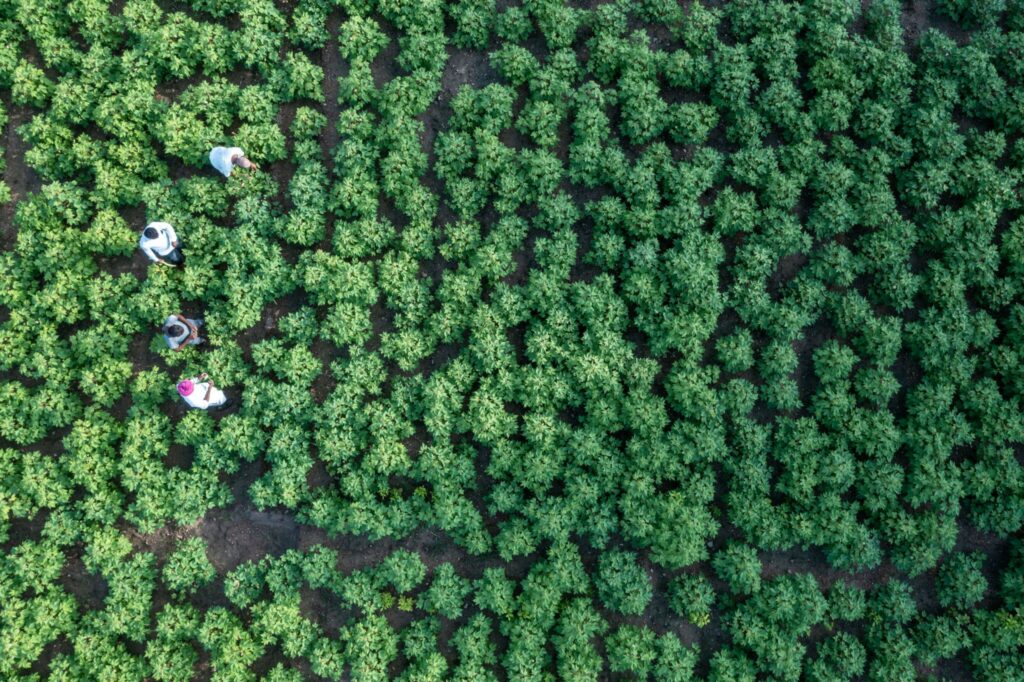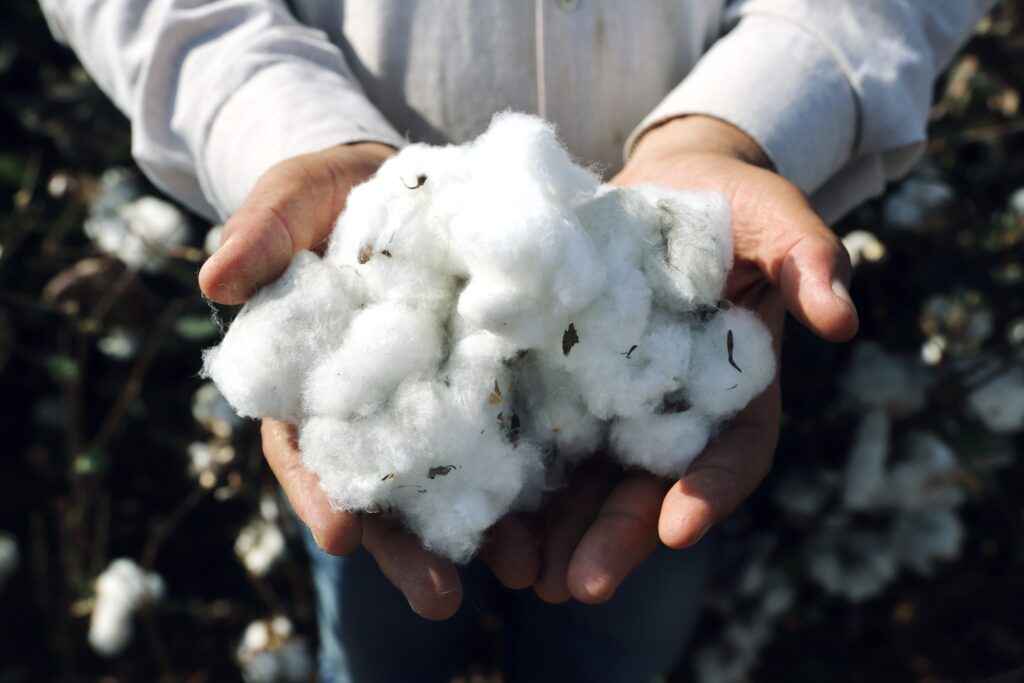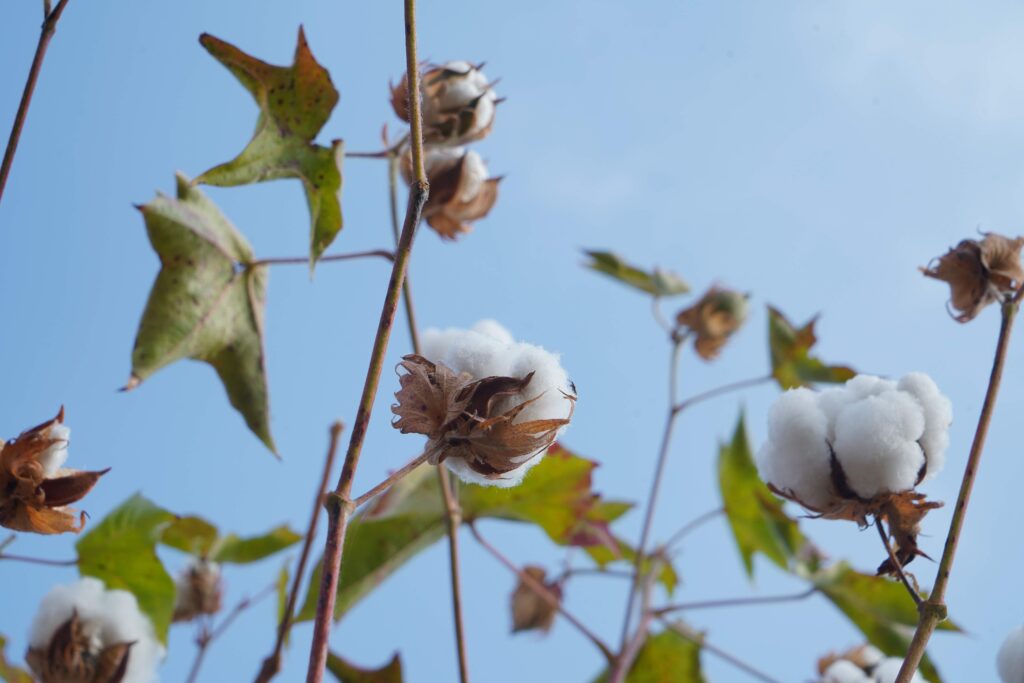Amsterdam/Lahore – The Organic Cotton Accelerator (OCA) is thrilled to announce the publication of the Organic Cotton Training Curriculum for Pakistan. This standardized “training of trainers” curriculum focuses on organic agronomic best practices specifically tailored to Pakistan’s unique context and represents another important milestone for the organisation as it increases its support for organic cotton farmers in Pakistan.
The newly unveiled curriculum represents the first comprehensive training package specifically designed for organic cotton growers in Pakistan. The resource is available on OCA’s website in English and Urdu, ensuring accessibility to a broader audience within the organic cotton sector across the country.
“At the heart of OCA's mission are the farmers, and this curriculum is a testament to our commitment to empower and support in-conversion and organic cotton farmers,” said Asif Mehmood, Senior Programme Manager-Pakistan at OCA. “The 'training of trainers' approach incorporated in the curriculum ensures a robust knowledge transfer system that will benefit Pakistani organic cotton farmers at large.”
Bringing together the sector to support organic cotton farmers
To celebrate this milestone, OCA is today hosting a launch event in Lahore, Pakistan that gathers stakeholders, including government representatives, suppliers and manufacturers, academia, and civil society organizations. Developed in collaboration with the Centre for Agriculture and Bioscience International (CABI) and with the participation of Pakistan’s Ministry for Food Security, the Pakistan Central Cotton Committee, Laudes Foundation, and WWF-Pakistan, this training initiative is a good example of the cross-sector collaboration OCA champions.
Dr. Yousaf Zafar, Advisor to the Minister of Food Security said, “the release of this training OCA is a critical moment in the movement to grow organic cotton in Pakistan. This will not only consolidate the earlier efforts, but will also bring positive change towards meeting international standards. The people of Pakistan are grateful to OCA and their local partner, CABI, for their adaptation of this training manual in the local context.”
“OCA’s long-term commitment to reforming the cotton sector is manifested in the development of a Pakistan-specific Organic Cotton training manual,” said Abdul Rehman-Deputy Director at CABI CWA. “CABI proudly supports this initiative by providing technical expertise.”
“Training or guidance material has always been a significant component of capacity building and motivation,” said Hafiz Muhammad Bux, Manager at WWF-Pakistan. “Besides OCA’s contributions in developing a conducive environment of organic cotton cultivation in Pakistan, its passionate efforts to develop the Organic Cotton Training Curriculum (OCTC) will add value to the existing supports. This will help develop a team of professionals with hands-on knowledge on mandatory procedures and practices of organic cotton cultivation to better guide farmers and other stakeholders.”
From the beneficiary groups perspective, Muhammad Saleem Akhter of the Mahmood group of Industries, added: “OCTC is first national guiding document on organic cotton farming of Pakistan. It smartly explains the overall process and its outcomes. It is simple and fully equipped with modern tools of communication and training aids like role-play, group activities and brainstorming which not only train the audience, but make the overall process fully participatory. I hope it will help in the training of master trainers and enable farmers to optimise organic cotton production.”
A country with immense organic cotton potential
The curriculum arrives at a crucial juncture for Pakistan’s cotton sector as the country grows as a producer of organic cotton in the global market. OCA aims to contribute to this growth by supporting and empowering farmers. This starts with creating the right conditions, including training and capacity-building, market linkages, access to non-genetically modified seeds and bio-pesticides, and financial incentives such as premium payments.
OCA launched in 2022 its fieldwork in Pakistan, when devastating floods affected millions of people and over one million hectares of agricultural land. In the first year, the organisation has onboarded over 1,200 farmers on the journey towards organic in a challenging context. This resource will help restore a more natural balance for Pakistani cotton farms and benefit the health and prosperity of farmers.
OCA remains committed to continuous improvement, and plans are underway to regularly update and enhance the curriculum, activity guides, and curriculum guidelines based on feedback from farmers, field staff, farm groups, and experts. This ensures that the materials capture the latest advancements and innovations in agronomic practices.
The organisation invites all actors within the cotton sector to utilise and engage with the curriculum.
- This curriculum is an adaptation of the material that was previously launched by the Organic Cotton Accelerator (OCA) for India in 2022. It was developed in collaboration with the Forschungsinstitut für biologischen Landbau (FiBL) under the development cooperation project ‘Sustainability and Value Added in Agricultural Supply Chains / Cotton’ that the Deutsche Gesellschaft für Internationale Zusammenarbeit (GIZ) GmbH implements on behalf of the German Federal Ministry for Economic Cooperation and Development (BMZ).



